第11章 REGINALD AT THE CARLTON(2)
"Scandal, my dear Irene--I may call you Irene, mayn't I?"
"I don't know that you have known me long enough for that."
"I've known you longer than your god-parents had when they took the liberty of calling you that name. Scandal is merely the compassionate allowance which the gay make to the humdrum. Think how many blameless lives are brightened by the blazing indiscretions of other people. Tell me, who is the woman with the old lace at the table on our left? Oh, THAT doesn't matter; it's quite the thing nowadays to stare at people as if they were yearlings at Tattersall's."
"Mrs. Spelvexit? Quite a charming woman; separated from her husband" -
"Incompatibility of income?"
"Oh, nothing of that sort. By miles of frozen ocean, I was going to say. He explores ice-floes and studies the movements of herrings, and has written a most interesting book on the home-life of the Esquimaux; but naturally he has very little home-life of his own."
"A husband who comes home with the Gulf Stream WOULD be rather a tied-up asset."
"His wife is exceedingly sensible about it. She collects postage-stamps. Such a resource. Those people with her are the Whimples, very old acquaintances of mine; they're always having trouble, poor things."
"Trouble is not one of those fancies you can take up and drop at any moment; it's like a grouse-moor or the opium-habit--once you start it you've got to keep it up."
"Their eldest son was such a disappointment to them; they wanted him to be a linguist, and spent no end of money on having him taught to speak--oh, dozens of languages!--and then he became a Trappist monk. And the youngest, who was intended for the American marriage market, has developed political tendencies, and writes pamphlets about the housing of the poor. Of course it's a most important question, and I devote a good deal of time to it myself in the mornings; but, as Laura Whimple says, it's as well to have an establishment of one's own before agitating about other people's. She feels it very keenly, but she always maintains a cheerful appetite, which I think is so unselfish of her."
"There are different ways of taking disappointment. There was a girl I knew who nursed a wealthy uncle through a long illness, borne by her with Christian fortitude, and then he died and left his money to a swine-fever hospital. She found she'd about cleared stock in fortitude by that time, and now she gives drawing-room recitations. That's what I call being vindictive."
"Life is full of its disappointments," observed the Duchess, "and I suppose the art of being happy is to disguise them as illusions. But that, my dear Reginald, becomes more difficult as one grows older."
"I think it's more generally practised than you imagine. The young have aspirations that never come to pass, the old have reminiscences of what never happened. It's only the middle-aged who are really conscious of their limitations--that is why one should be so patient with them. But one never is."
"After all," said the Duchess, "the disillusions of life may depend on our way of assessing it. In the minds of those who come after us we may be remembered for qualities and successes which we quite left out of the reckoning."
"It's not always safe to depend on the commemorative tendencies of those who come after us. There may have been disillusionments in the lives of the mediaeval saints, but they would scarcely have been better pleased if they could have foreseen that their names would be associated nowadays chiefly with racehorses and the cheaper clarets. And now, if you can tear yourself away from the salted almonds, we'll go and have coffee under the palms that are so necessary for our discomfort."